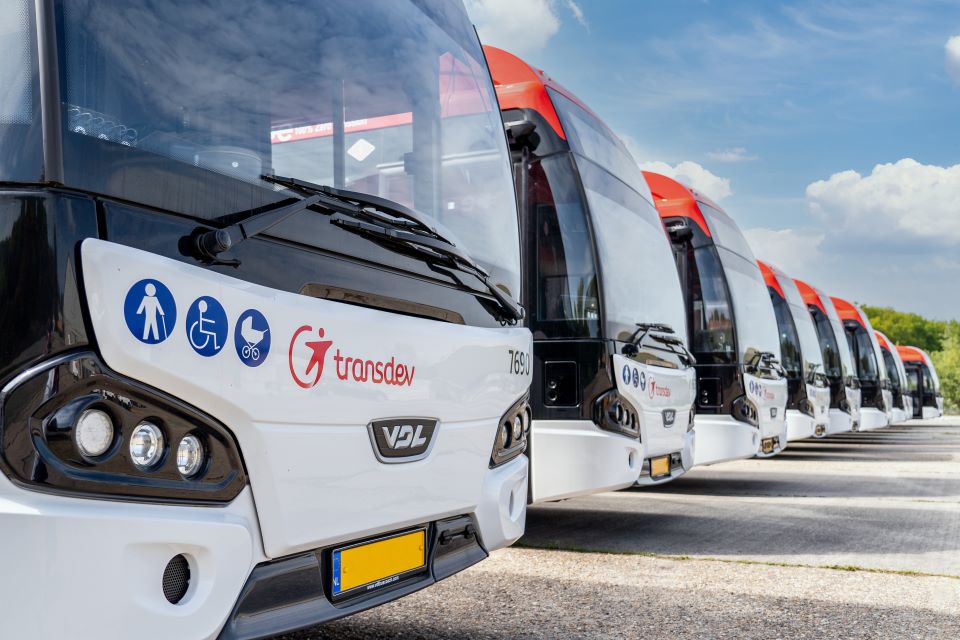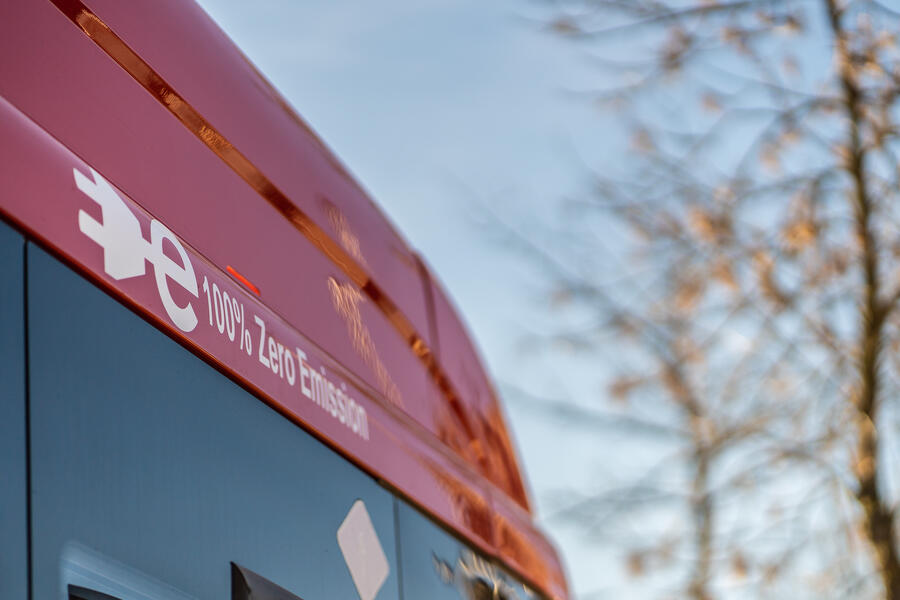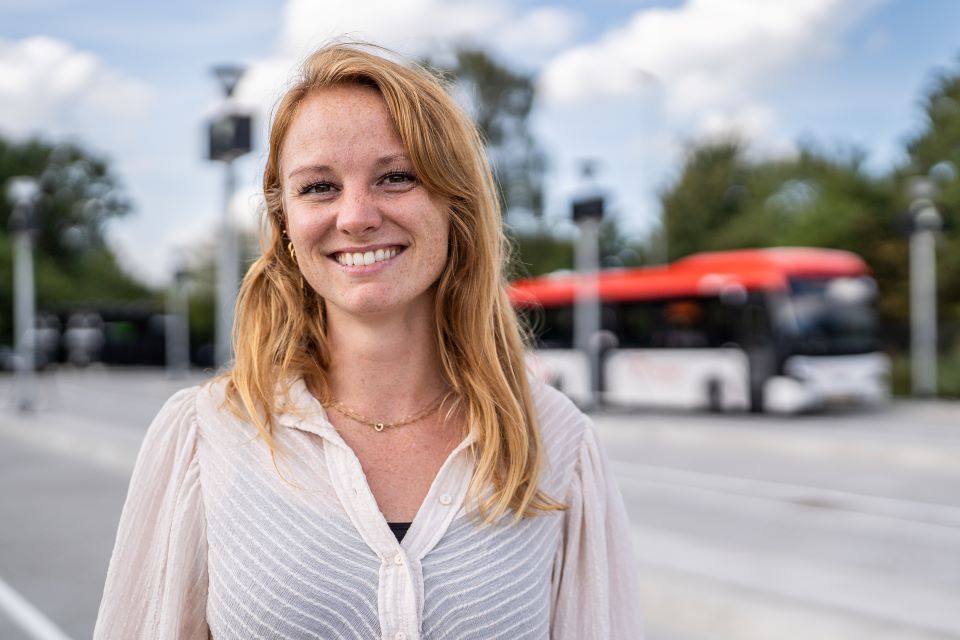Djoeke Vissia is leading the implementation of the Utrecht urban network’s multimodal transport system, a groundbreaking project aimed at enhancing sustainability and accessibility. As Implementation Manager at Transdev, she shares her career journey, the challenges of managing the bus and light rail network in Utrecht, and her commitment to green, low-carbon transport solutions.
Could you briefly introduce yourself? Your career path, your position, your scope, your missions?
I’ve been with Transdev for three and a half years, with expertise in organizational science and change management. One of my first major projects was the development of TakeCharge, a software application, in cooperation with our French teams, to optimize the management of electric vehicle batteries and reduce breakdowns. This initiative marked a turning point, moving our organization away from a diesel-based model towards more sustainable management. For just over half a year, I’ve been responsible for the implementation of the concession business in the Utrecht region, one of the few large cities in the Netherlands still operating with a tender system. We’re very proud to have won it, as it’s a very competitive market. Our main mission is to make public transport more accessible and clean. Utrecht has a strong focus on sustainability, encouraging the use of public transport and cycling. We’re also working on accessibility measures, for all passengers, and we’re committed to making transport greener.
Can you tell us more about this concession to manage multimodal public transport covering the bus and light rail network in and around Utrecht’s city center?
The ten-year concession covers the Utrecht city center light rail and bus network. We know this area well, having managed it in the past. Our innovative approach, based on sustainability and circularity, enabled us to achieve an excellent score in the call for tender. I’m very proud of the work we’ve done and the boldness we showed in winning this project.
The concession comprises around 300 buses and 54 tramways. Operating trams is a new field for us, and we are working with experts to make this a success. A great benefit is that we can make the most of colleagues’ experience elsewhere, for example in Ireland. We will operate five depots, with 24 million kilometers covered and 40 million passengers transported each year. The contract represents a turnover of around 1.7 billion euros over ten years. The buses have been ordered, and we are monitoring their production in collaboration with the province.

The contract also means that all buses will be electric by 2028. How does this fit in with Transdev’s “Moving green” strategy and its broader approach to low carbon transport?
The transition to low carbon transport is at the heart of our project, which is fully in line with Transdev’s “Moving Green” strategy. In the Netherlands, we are pioneers in sustainable mobility, and this project is a key step in supporting the city’s rapid growth, while reducing our carbon footprint.
We are introducing a fleet of 100% low carbon vehicles, combining electric buses and modern tramways, while optimizing our infrastructure for more sustainable operations. This approach is based on close collaboration with local authorities and our partners, to ensure an effective transition.
This project is a perfect illustration of Transdev’s commitment to developing innovative transport solutions that respect the environment and meet passengers’ growing needs.

As a woman in a sector that is still predominantly male, have you encountered any particular challenges in your career?
At the moment, I’m taking part in a Transdev group mentoring program on female leadership. I find this essential, as there are still very few women in the transport sector, especially young women. It’s important that we’re given the opportunities to develop.
This mentoring has helped me to think about my future, the skills I can acquire and how to get there. I also learn a lot from the other participants – we’re a group of about eight women. This network has given me a great deal of support and enabled me to carry out this project successfully. I’m proud to see myself, a young woman, in this role, as most implementers in the Netherlands are men with years of operational experience. My expertise is more in project management and process improvement. The fact that profiles like mine, and more broadly young women, get opportunities like this, definitely accelerates growth within Transdev.
Any final words?
This is the first time I’ve been in charge of implementation, which means I see it up close, every stage of the process. From site layout to driver training and general organization, I have a complete picture of what’s involved now. I’m in awe of and very impressed by the expertise of my colleagues, both in the Netherlands and internationally. Managing public transport in a large city is a complex challenge. The players involved and the many variables to be taken into account make this project all the more ambitious. I’d like to stress how impressive it is to see a company succeed in building such an organization in just a year and a half. So far, it is a success thanks to outstanding teamwork.

